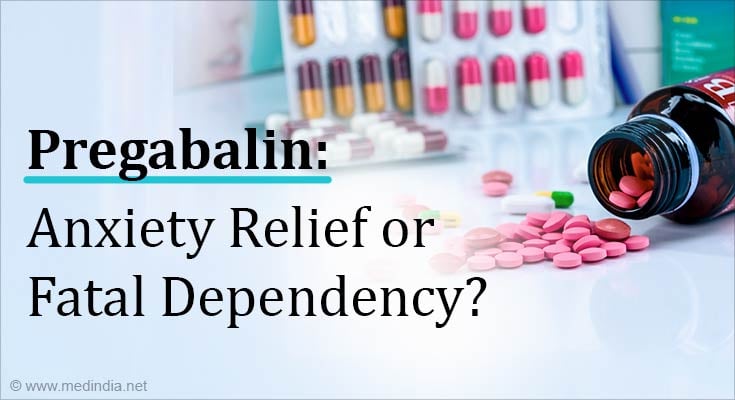- Pregabalin misuse associated with thousands of deaths over five years
- Rising mortality rates underscore the urgent need for regulatory measures
- Tragic stories like Alex Cottam’s highlight the human toll of pregabalin dependence
Pregabalin, a widely prescribed anti-anxiety medication in Britain, has come under scrutiny due to its association with thousands of deaths over the past five years. Despite being prescribed to more than eight million individuals in Britain alone, concerns have surfaced regarding its widespread usage and potential adverse effects. Originally introduced as a treatment for anxiety, epilepsy, and nerve pain, pregabalin has raised alarm bells among healthcare professionals and patients alike (1✔ ✔Trusted Source
Pregabalin for the treatment of generalized anxiety disorder: an update
).
Pregabalin’s Lethal Connection
The parallels drawn between pregabalin’s prescription and “selling a car without brakes” underscore the gravity of the situation. Dependency on pregabalin has emerged as a significant issue, with individuals reporting addiction to the drug’s euphoric effects. Similar to the challenges faced with morphine and oxycodone withdrawal, the journey to wean off pregabalin can be fraught with difficulties and withdrawal symptoms.
Users of pregabalin have voiced concerns about its side effects, which range from erratic behavior and blurred vision to mood swings and suicidal thoughts. Many individuals are desperate to reduce their dosage or discontinue the medication altogether, feeling that it has “robbed them of their lives.”
The statistics surrounding pregabalin-related deaths in Britain are alarming. Over the past five years, nearly 3,400 deaths have been linked to the drug. This represents a significant increase from just nine fatalities in 2012, indicating a troubling trend in pregabalin-related mortality. In 2022 alone, pregabalin was involved in 779 deaths, underscoring the urgency of addressing its potential risks and consequences.
Recent data reveals that pregabalin has the fastest-rising death toll of any drug in the UK, trailing closely behind opiates, cocaine, and benzodiazepines in the number of fatalities it is associated with. These figures paint a stark picture of the widespread impact of pregabalin misuse and highlight the need for proactive measures to mitigate its adverse effects.
Human Stories Behind the Statistics
Among the tragic stories associated with pregabalin is that of Alex Cottam, a talented software engineer who succumbed to a fatal overdose at the age of 27. Alex’s mother, Michelle, recounted how the drug completely altered her son’s behavior and led to an unhealthy obsession with recreating its effects. Despite initially experiencing relief from anxiety symptoms, Alex’s dependency on pregabalin spiraled out of control, ultimately resulting in his untimely death.
The devastating consequences of pregabalin misuse extend beyond individual tragedies to societal implications. With over 8.6 million prescriptions issued in England in 2022 alone, the widespread availability and usage of pregabalin raise concerns about its long-term impact on public health.
Efforts to address pregabalin misuse and dependency must encompass a multifaceted approach. Healthcare professionals play a pivotal role in educating patients about the potential risks associated with pregabalin and exploring alternative treatment options where appropriate. Additionally, regulatory measures aimed at monitoring and controlling the prescription and distribution of pregabalin are essential to mitigate its adverse effects and prevent further harm.
In conclusion, the rising incidence of pregabalin-related deaths in Britain underscores the urgent need for action. By raising awareness, implementing regulatory safeguards, and providing support for individuals struggling with pregabalin dependency, we can work towards mitigating the risks associated with this widely prescribed medication. It is imperative that we prioritize patient safety and well-being to prevent further tragedies and safeguard public health.
Advertisement
“The rising incidence of pregabalin-related deaths underscores the urgent need for action.”
Reference:
- Pregabalin for the treatment of generalized anxiety disorder: an update – (https://www.ncbi.nlm.nih.gov/pmc/articles/PMC3699256/)
Source-Medindia



